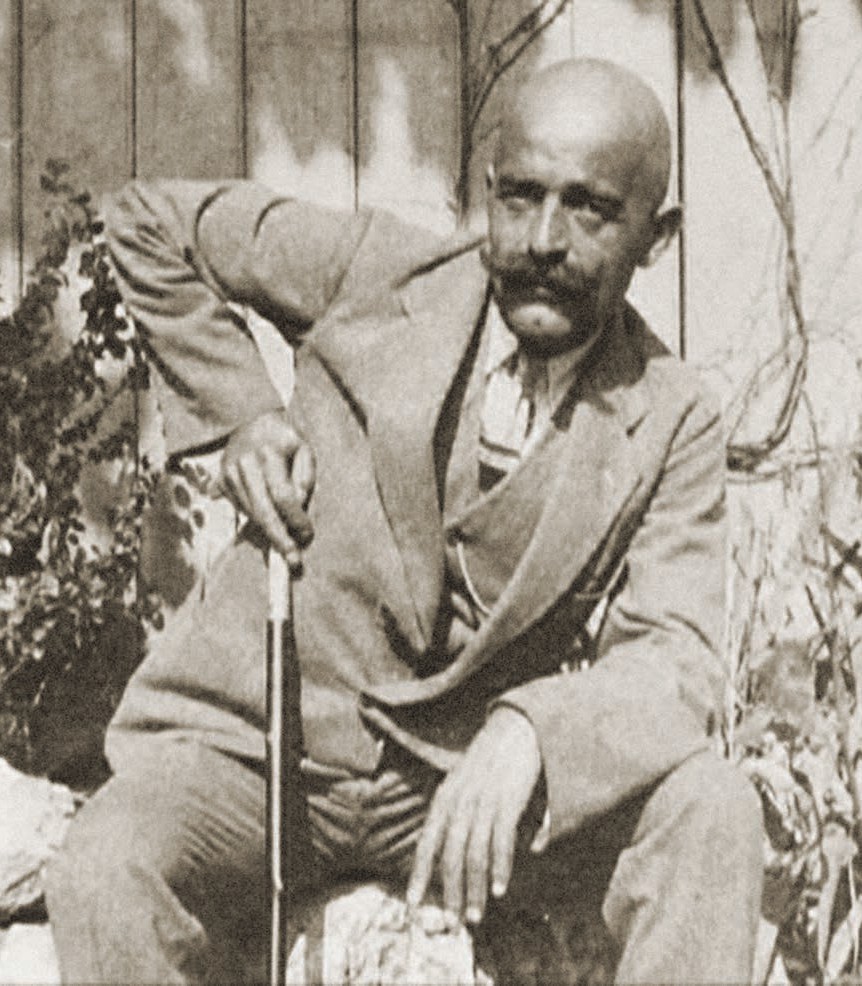Gurdjieff George

Gurdjieff George (1872-1949), Theosophist, adept of Oriental occultism, author of Christian mystical-anthropological doctrine. By descent, he was a Greek of Ionian extraction. His ancestors lived in Constantinople and later on, they settled in Georgia. G. Gurdjieff’s father – Ivan Gurdjieff – renowned ashug (folk poet and singer) separated from his brothers and moved to live in Alexandropol (present-day Gyumri), Armenia, where George Gurdjieff was born. He spent his childhood years in Alexandropol, later – in Kars, then – in Tbilisi. His parents were preparing him for a spiritual carrier, however, he was carried away by philosophical literature. At that time, Tbilisi had the greatest and newest choice of books throughout the entire South Caucasus. When he grew up, he would frequently visit Tbilisi, where, evidently, he lived in the Didube district. He learned Georgian language there. He was in his green years, when he left Georgia for Asian and African countries, where he became acquainted with Asian culture, occultism and spiritism. He spent a long while in Tibet, where, as the story goes, he became close friends with Dalai Lama and served as his counselor during the Tibet-England War (at the turn of the 20th century).
In January of 1919, G. Gurdjieff, his wife Elena Ostrovskaya, accompanied by composer of Petersburg Opera Thomas de Hartman with his spouse and Gurdjieff’s several disciples arrived in Tbilisi. The society of Tbilisi displayed due interest in the well-known guests. G. Gurdjieff made acquaintance of Grigol Robakidze, painter Alexander Zaltzman and his wife, choreographer Jeane-Matinion Zaltzman. Gurdjieff’s Sacred Dances and Sacred Gymnastics were performed at the Tbilisi Gymnastics School of Dalcroze Eurhythmics System, founded by Madame Zaltzman.
In 1919, in Tbilisi, G. Gurdjieff set up the Institute of Harmonic Development of Man. The government of independent Georgia allocated a two-story building to him on No. 22, Nicholas Str. (current I. Javakhishvili Str.). There he used to deliver public lectures on key topics of his doctrine. At the Opera House he initiated work on theatrical production entitled Battle of Magi (text by G. Gurdjieff, music by T. Hartman) but he failed to complete the work in Tbilisi. In 1922 G. Gurjieff left Georgia. Starting from 1933 till his death, he lived in Paris.
G. Gurjieff’s doctrine is expounded in his compositions, which have been posthumously published by his disciples: Everyone And Everything (or Beelzebub’s Tales to His Grandson) (1950, London), In the Universe of Truth (1963, Basel), Life Is Real Only When ‘I Am’ (1984, Basel) and etc.


